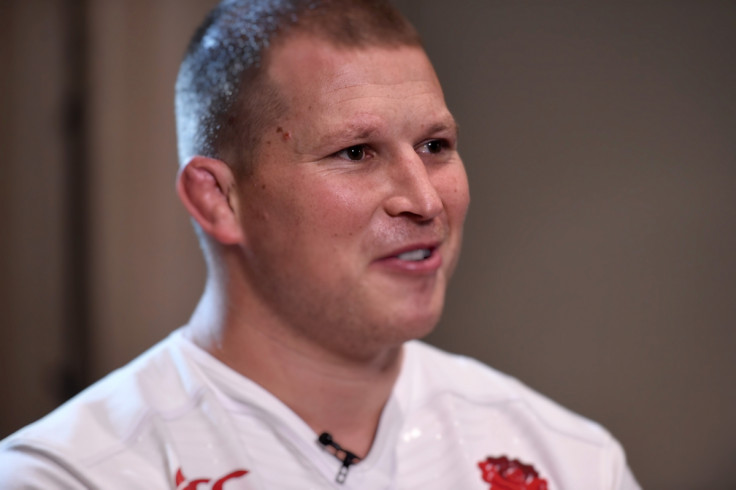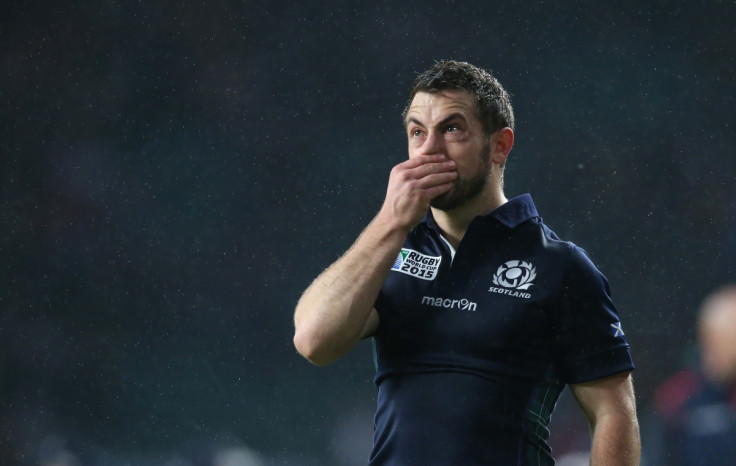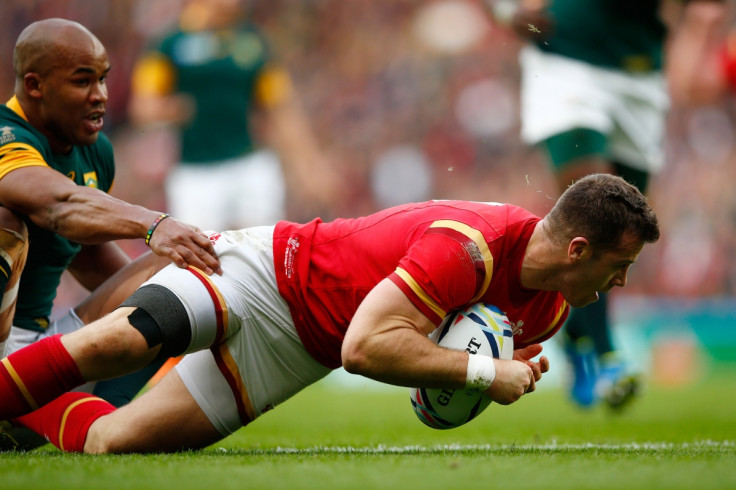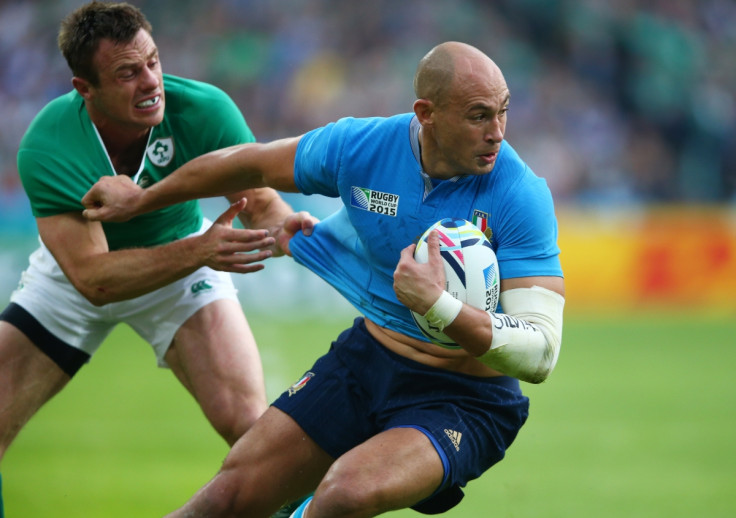Six Nations 2016 preview: Flurry of changes only swelling championship attraction
The last time the Six Nations was in such a state of flux, in the year 2000 when Italy were added to the championship, number one at the UK box office was the Ashley Judd movie Double Jeopardy. By pure coincidence, the title of the American thriller aptly defines the upcoming campaign for many sides in this year's tournament after big changes following the Rugby World Cup.
New captains, coaches, kits, expectations and goals litter this year's competition; perhaps the most open in years, devoid of an outstanding front-runner. The annual media curtain-raiser in Putney was the first opportunity for many of the new faces to outline their plans for the championship – and for the verbal jousting to begin.
England have arguably endured the biggest overhaul since the World Cup. There is a new coach in the form of Australian Eddie Jones, a new skipper in the form of New Zealander Dylan Hartley [can you sense a theme?] and seven uncapped players amid 10 alterations from the disastrous pool stage exit. Gone is Stuart Lancaster and his backroom team, as well as Chris Robshaw (at least as captain), but as significant is the change in the mindset that England enter the Six Nations as anything other than favourites.
A common theme of Jones' brief encounters with the media has been the onus on recapturing the essence of English rugby and the traits that define the nation. A solid set-piece, with the controversial Hartley at the fore, is key according to the former Japan coach. "If you talk about what a championship stands for, the Six Nations is about contest isn't it? It's a contest in the set-piece, it's a contest at the breakdown; it has never been a tournament known for its continuity.

"The reality is the start of this Six Nations is going to be about contest and contest is about set-piece. We have a lot of work to do in that area but I believe with the talent we've got we can get back that fear factor of England having that dominant set-piece. We're England. We're not Ireland, we're not Wales; we'll play the England way. "
England's opponents on the opening weekend, Scotland, enter the tournament in a vastly different mentality than they left it in 2015. The Scots looked hopeless as they slipped to the wooden spoon, but such despondency was replaced by renewed optimism following a World Cup campaign only ended by a refereeing blunder by Craig Joubert against Australia in the quarter-final. Greig Laidlaw was the stand-out player of the autumn and he believes starting well at Murrayfield against a new-look England is key to a decent campaign.
"Looking back we've never started the tournament well," the Gloucester scrum-half admitted. "We have put ourselves under pressure and it is a difficult enough tournament as it is without starting well. Clearly the start is key and you can't look past the first game.
"The fixture is incredible. But at the same time we need to remove ourselves from that otherwise you're going in there with a clouded mind and you need a clear mind to win these games. It is something we've work at as a group. As players we want to make Murrayfield not a nice place to come and play against us, so it will be down to our performance."

No country has won the Six Nations three times in a row in the professional era, let alone in the six-nation format, but Ireland can do just that should they navigate the next two months successfully. However, Joe Schmidt's side have perhaps suffered the biggest loss of any of the teams involved in the form of lock Paul O'Connell, who retired after 13 years in the international game.
Following the exit of Brian O'Driscoll the previous year, Ireland have been hurt by retirements, but new captain Rory Best is hoping the spirits of both players live on in the current Ireland team. "I think if you speak to Paul before, he took over from Brian and it was a big challenge stepping into some big shoes there. Brian before that took over from Woody [Keith Wood]. So every time there is a change in captain you're filling big shoes because they are a pivotal part of Irish rugby.
"It is a challenge but I think one thing that Paul did really well was he didn't change how he went about things. He got put in there because how he was about the place and you don't have reinvent things you just have to keep trying to lead by example and keep leaning on similar players like we have done in the two years under Joe and that will continue."
The most settled of the six sides are Wales, despite still being without Leigh Halfpenny, Rhys Webb and Liam Williams due to injury. Warren Gatland's young squad swam rather than sunk when called upon during the World Cup and though they travel to Dublin in their first game they are among the contenders for the title.

But Gatland has warned: "It is so difficult to win because there are so many teams capable of winning it. Since 2000 the first couple of years were dominated by England and France. The rest of the rest of the Celtic nations would make up the number and I think that has changed in recent years.
"You go into the tournament and there are a number of years who can win this competition. It is a competition about momentum, confidence and if you win your first couple of games you can go on and win. It is about self-belief and confidence."
Of the countless managerial departures after the World Cup, none leaves a greater void than Philippe Saint-Andre – the enigmatic former France coach. Only the entertainment served up by Les Bleus during the 48-year-old's spell in charge equalled the surprise that it lasted as long as it did with such little progression.
New coach Guy Noves has inherited Saint-Andre's crazy selection policies –choosing just one specialist fly-half in his squad – and though Mathieu Bastareaud is not involved this time around the new man at the helm is not planning to rock the French boat. "I never thought looking at the World Cup that the French were not getting the results, so we must change everything.

"My first objective has been to look at the state of the young players' minds. The message I have been trying to convey to my players is don't overthink, take pleasure on the field and think about giving pleasure. Time will only tell if the players have understood the direction we want to go into."
Last and, with no disrespect intended, least come Italy. The Azzuri endured a horrendous World Cup in part down to injury suffered by captain Sergio Parisse in the warm-up games and over the next eight weeks will surely play the role of whipping boys, which will intensify calls for a promotion and relegation system.
The tournament marks the end of Jacques Brunel's spell in charge, but with a successor not yet confirmed (though Conor O'Shea of Harlequins has been tipped for the role) Italy's future is clouded in uncertainty. Therefore, the objectives for Parisse, whose side are beset by 13 separate injuries, are naturally understated.
"This year we have two matches at home," the number eight stated. "England and Scotland at home and whenever we play in Rome our aim is to win. We knew we can easily lose to England and easily lose to Scotland. It is going to be difficult but the aim for the team is to be regular throughout the tournament. We played teams who have had poor World Cups. We must try and build confidence from these matches. The second part of the Six Nations we'll get some players back and if we can play well we can build confidence."
© Copyright IBTimes 2024. All rights reserved.






